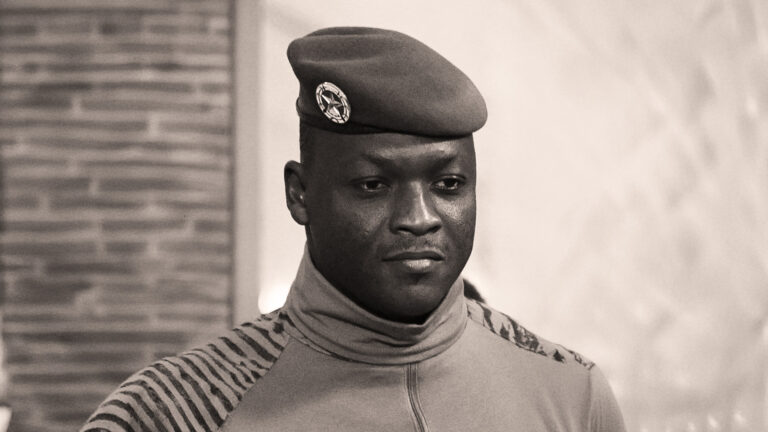Does the Bible present a pronounced distinction or sameness concerning gender and gender roles? How many genders are there? In the public square, things are getting a little confusing; so too in public toilets, not to mention sports. This confusion is real. But it isn’t abstract. It involves real people, with genuine struggles and crushing questions regarding identity. There’s grief, anxiety, fear, and confusion.
This confusion is real. But it isn’t abstract. It involves real people.
Questions abound relative to gender, even if only few people are asking them at present. In this article I hope to begin outlining a Christian approach to the multiplying confusion around sexuality and identity in our world.
How’d We Get Here?
Most societies and cultures worldwide, throughout history, have thought that there are only two genders. You have males and females. Men and women. But things have certainly changed in the last century.
Today there’s a massive push not only to claim the existence of innumerable genders but essentially to render the whole concept of gender meaningless. Transgender ideology prevails in the West and is quickly becoming inescapable in Africa. A particular challenge for Africans is that traditionally we avoid issues of sex entirely, which is now true of questions regarding gender as well. Where I come from, Zimbabwe, it’s a cultural taboo to discuss sex and related matters. The most you’ll hear about it comes from some aunt, in preparation for marriage.
There’s a new proverbial elephant in the living room of African homes: gender identity.
But pressure is mounting across the continent. Parents, pastors, educators, and medical professionals are facing a youth that are increasingly intolerant of the idea that your anatomy (or sex) and gender are one and the same. This used to be something we only saw on the news or online. Now it’s coming home, literally. There’s a new proverbial elephant in the living room of African homes: gender identity.
Therefore African Christians need to prepare. By this I mean more than being clear on what God teaches about gender; I’m referring to the need for care and compassion towards those with questions. More and more moments will be arising when Christians are called on to give an answer. When we do so we must uphold the truth with love (Ephesians 4:15). The Bible incontrovertibly confronts transgender ideology, but we will encounter people not mere ideas.
What Is Gender?
When we refer to males, we refer to individuals with X and Y chromosomes. When we talk about females, we refer to individuals with two X chromosomes. However, large portions of society today insist on a distinction between gender and biological sex. Taking that further, people claim that men and women are entirely interchangeable, with no inherent gender differences or roles. Progressive sexual ideologies effectively separate gender from biological sex. They affirm that there are two sexes at birth, but reject any notion of assigning or forcing individuals into specific genders.
Progressive sexual ideologies effectively separate gender from biological sex.
It’s barely controversial, however, to note that the Bible contradicts such a move. God doesn’t adopt such language. He defines gender within the context of creation. So we read that “male and female he created them” (Genesis 1:27). The Bible consistently teaches that God made us biologically different as male and female. And this distinction extends to gender. It identifies inherent differences between men and women, males and females—even prescribing peculiar roles to each. God made us like this and he called it good.
Does God Treat Males and Females Equally?
The resounding answer is that God bestows equal dignity on men and women (Genesis 1:27). Despite the stark distinction, God creates both men and women in his image. Both share in the ability to relate to God and the responsibility of ruling over his creation (Genesis 1:28).
If we take a big jump from creation to Jesus, the perfect example of what it means to live as one of God’s people under God’s law to God’s glory, he treats women equally, in every way. Jesus doesn’t make jokes at their expense but cares for them, heals them, and even listens to them. Jesus treats men and women equally. Above all, he came to save both.
Consider Paul’s famous—though readily misused—statement in Galatians 3:28, clarifying that the gospel is available equally for both men and women. Neither needed more salvation than the other. Believers then, as Paul continues, are one in Christ.
Though equal in value and dignity, men and women aren’t interchangeable.
Unfortunately this theology of gender equality hasn’t reigned in the church. God’s view and treatment of women hasn’t always been reflected in how Christians value each other. As is so often the case, in the battle of the sexes it’s usually women who lose. Thus the church has need for serious introspection and very likely much repentance. We’re caught up in this same mess.
Yet the solution to the historical mistreatment of women isn’t to deny a gender binary. Nor is it the proliferation of genders beyond male and female. For both of these have been costly for women, forcing feminism onto the back foot. Though equal in value and dignity, men and women aren’t interchangeable. God created us with significant differences. These aren’t social, religious, or cultural constructions but the very fabric of reality. This raises another question.
Why Did God Create Us With Differences?
This is where things get tricky. Of course, there are more reasons to point out than the three below. However, I want to look at those that I believe are critical. And of the three, the third one is better than the other two, as I will explain.
1. Procreation
Firstly, God created us with external and internal differences so that we can make children. The biological differences between men and women serves procreation, to “fill the earth” (Genesis 1:28).
But that’s not the whole point. If you follow the storyline of the Bible, the focus seems to shift from children-making to disciple-making (Matthew 28:16-20). This change of direction is crucial, because it means that those who’re infertile are still part of God’s plan and purposes.
2. Companionship
The second reason Christians typically argue for gender differences is that God created us for companionship. Genesis 2:18-25 stands out in this regard. There God says, “It is not good for man to be alone.”
Similarly to the previous point, however, this isn’t all the Bible says about companionship. Adam needed someone for friendship; and God created Eve for fellowship and procreation. But once they’d begun populating the world, gender differences were no longer required for companionship. Companionship is therefore not limited to marriages. Through Adam and Eve God populated the earth with many people, some of whom will become dear friends and fellow believers—both within and beyond marriage.
3. A Picture of God’s Love
The third reason, I think, though complex, best answers the question. God has given us two distinct genders to enable us to grasp his nature, plans, and purposes. This is expressed in the context of sexual union within marriage, which helps us understand God’s love for us. This flows throughout the whole Bible, culminating in the heavenly wedding banquet.
Marriage is a signpost to our deep, genuine, spiritual relationship with God.
In Genesis 2, we start with Adam and Eve, male and female, created, and married. Then in the book of Hosea he shows how terrible was Israel’s unfaithfulness towards their God. While lots happens in-between, when we arrive at the book of Revelation we see a marriage at the end of the story. God’s people are united to him, forever. Humanity’s relationship with God is illustrated and acted out in marriage. It points us to the depth of God’s love for us. Marriage is a signpost to our deep, genuine, spiritual relationship with God. We see this, perhaps, most clearly in Ephesians 5. Humanity’s relationship with God is illustrated using the picture of marriage, pointing to the depth of God’s love for sinners.
However, this doesn’t mean that those who have the gift of singleness can’t understand God’s nature, plans, or purposes. Marriage is just one way among many that God uses to depict his great love and rescue.
What’s the Christian’s Way Forward?
Moving towards a conclusion, it’s right to say that God made us equal, male and female. But it’s wrong to try and say that God made us to do the same thing. We share dignity; however there are two distinct genders. No more. No less. Leaning on ideology, many will disagree. But biologically, historically, sociologically, and theologically, there is ample evidence of two distinct genders.
God values both men and women equally. Each possess a role within his plans and purposes, even if there are roles distinct to each of the genders. Where the church has erred there is need for repentance. Men, we should hold women in the same regard that God does.
Then, we must embrace our created differences, whether in marriage or the broader context of relationships and church. Here, there is much room for further reflection: we must consider whether the different roles we embrace are culturally generated or biblical motivated.
We must embrace our created differences, whether in marriage or the broader context of relationships.
Finally, let us give thanks to God that he made us both male and female. For, as he says immediately after doing so, this is good. The world would be terribly dull not to mention exceedingly dangerous were it full of only men. But God, who loves us deeply, has a wonderful plan and purpose for us. So let’s celebrate our gender. We are made in God’s image to fulfil his goal for creation.














